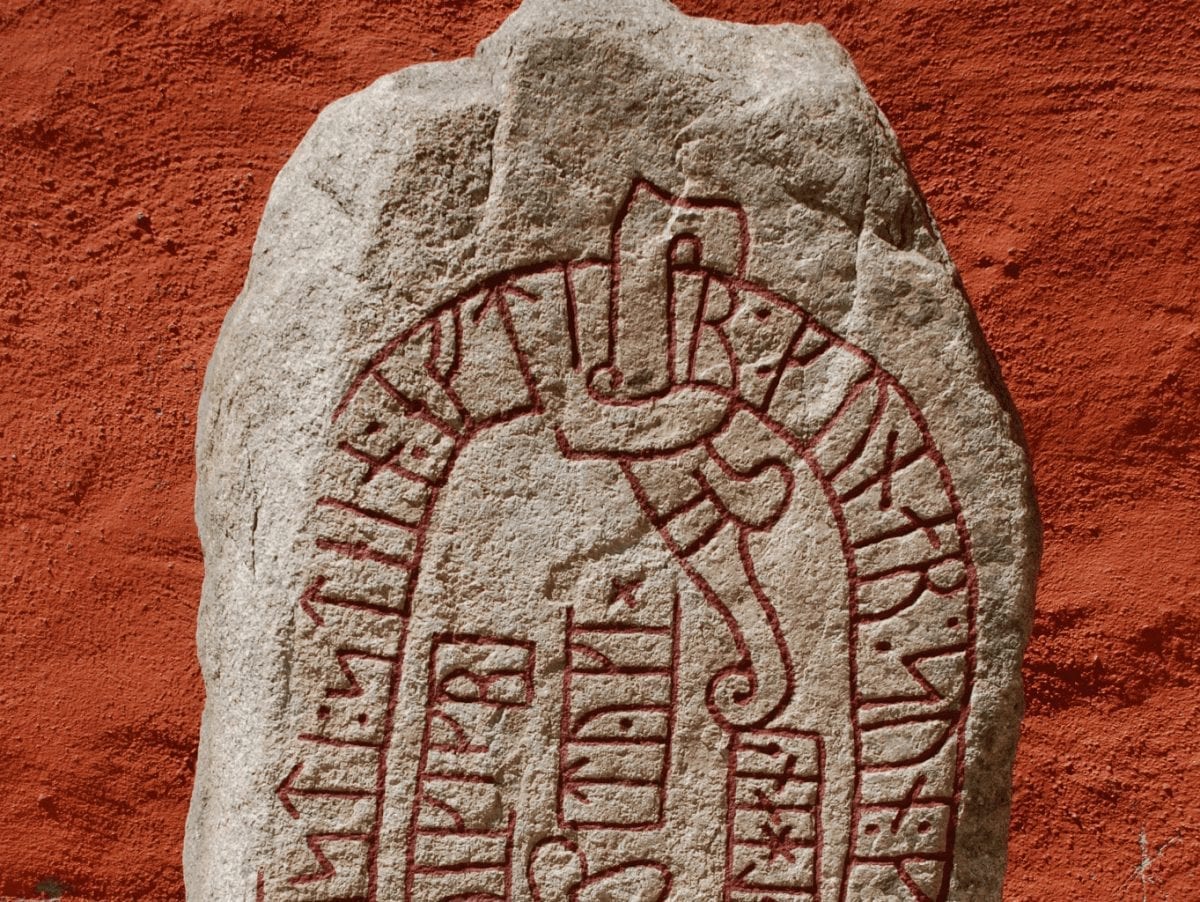We all know about the Vikings. Those hairy warriors from Scandinavia who raided and pillaged, and slashed and burned their way across Europe, leaving behind fear and destruction, but also their genes, and some good stories about Thor and Odin.
The stereotypes about Vikings can partly be blamed on Hollywood, or the History Channel. But there is also a stereotype hidden in the word “Viking”. Respectable books and websites will confidently tell you that the Old Norse word “Viking” means “pirate” or “raider”, but is this the case? What does the word really mean, and how should we use it?
There are actually two, or even three, different words that such explanations could refer to. “Viking” in present-day English can be used as a noun (“a Viking”) or an adjective (“a Viking raid”). Ultimately, it derives from a word in Old Norse, but not directly. The English word “Viking” was revived in the 19th century (an early adopter was Sir Walter Scott) and borrowed from the Scandinavian languages of that time. In Old Norse, there are two words, both nouns: a víkingr is a person, while víking is an activity. Although the English word is ultimately linked to the Old Norse words, they should not be assumed to have the same meanings.
Víkingr and Víking
The etymology of víkingr and víking is hotly debated by scholars, but needn’t detain us because etymology only tells us what the word originally meant when coined, and not necessarily how it was used or what it means now. We don’t know what víkingr and víking meant before the Viking Age (roughly 750-1100AD), but in that period there is evidence of its use by Scandinavians speaking Old Norse.
The laconic but contemporary evidence of runic inscriptions and skaldic verse (Viking Age praise poetry) provides some clues. A víkingr was someone who went on expeditions, usually abroad, usually by sea, and usually in a group with other víkingar (the plural). Víkingr did not imply any particular ethnicity and it was a fairly neutral term, which could be used of one’s own group or another group. The activity of víking is not specified further, either. It could certainly include raiding, but was not restricted to that.
A pejorative meaning of the word began to develop in the Viking Age, but is clearest in the medieval Icelandic sagas, written two or three centuries later – in the 1300s and 1400s. In them, víkingar were generally ill-intentioned, piratical predators, in the waters around Scandinavia, the Baltic and the British Isles, who needed to be suppressed by Scandinavian kings and other saga heroes. The Icelandic sagas went on to have an enormous influence on our perceptions of what came to be called the Viking Age, and “Viking” in present-day English is influenced by this pejorative and restricted meaning.
How to use it
The debate between those who would see the Vikings primarily as predatory warriors and those who draw attention to their more constructive activities in exploration, trade and settlement, then, largely boils down to how we understand and use the word Viking. Restricting it to those who raided and pillaged outside Scandinavia merely perpetuates the pejorative meaning and marks out the Scandinavians as uniquely violent in what was in fact a universally violent world.
A more inclusive meaning acknowledges that raiding and pillaging were just one aspect of the Viking Age, with the mobile Vikings central to the expansive, complex and multicultural activities of the time.
In the academic world, “Viking” is used for people of Scandinavian origin or with Scandinavian connections who were active in trading and settlement as well as piracy and raiding, both within and outside Scandinavia in the period 750-1100. The Viking Age was a large and complex phenomenon which went far beyond the purely military, and also absorbed people who were not originally of Scandinavian ethnicity.
As a result, the English word has usefully expanded and developed to give a name to this phenomenon and its Age, and that is how we should use it, without regard either to its etymology, or to its narrower meanings in the distant past.
Professor of Viking Studies, University of Nottingham
![]()







